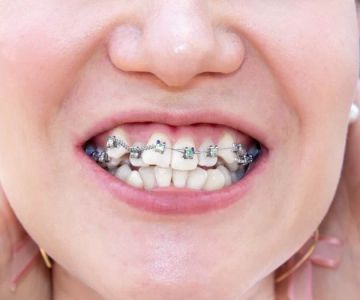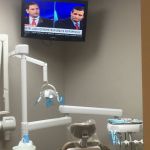
- Understanding Persistent Oral Bad Breath
- Common Causes of Chronic Halitosis
- Effective Solutions for Persistent Bad Breath
- Real-Life Cases and Professional Advice
- Maintaining Fresh Breath with Consistent Care
1. Understanding Persistent Oral Bad Breath
Oral bad breath, medically known as halitosis, is a common but often embarrassing problem that affects many people worldwide. While occasional bad breath can result from food or poor hygiene, persistent oral bad breath signals underlying issues that require attention. Persistent halitosis not only impacts social interactions but can also indicate oral or systemic health problems.
To effectively address this condition, it’s important to understand the causes behind persistent oral bad breath and explore the available solutions. Many individuals mistakenly rely on quick fixes, which may mask symptoms temporarily but fail to resolve the root causes.
1.1 The Nature of Bad Breath
Bad breath originates from the accumulation of volatile sulfur compounds (VSCs) produced by bacteria breaking down proteins in the mouth. These bacteria thrive on the tongue, gums, and between teeth, especially when oral hygiene is compromised. Persistent bad breath typically results when these bacterial populations grow unchecked or when other health conditions exacerbate the problem.
2. Common Causes of Chronic Halitosis
Identifying the causes of persistent oral bad breath is crucial for effective treatment. Several factors contribute to chronic halitosis, ranging from oral conditions to systemic health issues.
2.1 Poor Oral Hygiene
Insufficient brushing and flossing allow food debris and plaque to accumulate, fostering bacterial growth that produces foul odors. The tongue, often overlooked in cleaning routines, harbors many odor-causing bacteria.
2.2 Gum Disease and Dental Issues
Gingivitis and periodontitis create pockets where bacteria flourish. Untreated cavities and infections also contribute to persistent bad breath, making dental care essential.
2.3 Dry Mouth (Xerostomia)
Saliva naturally cleanses the mouth by washing away food particles and neutralizing acids. Reduced saliva flow, whether from medications, dehydration, or medical conditions, leads to dry mouth and worsens bad breath.
2.4 Diet and Lifestyle Factors
Certain foods like garlic, onions, and spices can cause temporary bad breath. Smoking and excessive alcohol consumption not only cause odors but also damage oral tissues and reduce saliva.
2.5 Medical Conditions
Conditions such as sinus infections, respiratory tract infections, diabetes, and gastrointestinal disorders can manifest as persistent bad breath. In these cases, addressing the underlying medical issue is key to resolution.
3. Effective Solutions for Persistent Bad Breath
Addressing persistent oral bad breath requires a multi-faceted approach combining improved oral hygiene, lifestyle changes, and professional care.
3.1 Enhanced Oral Hygiene Practices
Regular brushing, flossing, and tongue cleaning remove the bacterial biofilm responsible for odor. Using antibacterial mouth rinses and specialized tongue scrapers can significantly reduce VSC-producing bacteria.
3.2 Professional Dental Treatment
Routine dental check-ups are vital to detect and treat gum disease, cavities, and infections. Professional cleanings remove tartar and plaque beyond the reach of daily brushing, helping control halitosis effectively.
3.3 Managing Dry Mouth
Increasing water intake, using saliva substitutes, and avoiding alcohol-based mouthwashes help alleviate dry mouth symptoms. Consulting healthcare providers about medications that reduce saliva can also lead to alternatives.
3.4 Lifestyle Modifications
Quitting smoking, moderating alcohol consumption, and adjusting diet to limit odor-causing foods improve breath freshness. Chewing sugar-free gum stimulates saliva production and helps clear food debris.
4. Real-Life Cases and Professional Advice
Consider the story of Mark, who struggled with persistent bad breath despite good brushing habits. After consulting his dentist, he discovered untreated gum disease and a dry mouth condition caused by medication. With targeted treatment, including professional periodontal therapy and saliva stimulants, Mark regained fresh breath and confidence.
Experts emphasize that persistent oral bad breath should never be ignored. For tailored solutions and recommended oral care products to tackle bad breath effectively, Dentistry Toothtruth offers a wide range of options suited to individual needs.
5. Maintaining Fresh Breath with Consistent Care
Long-term management of oral bad breath involves consistent daily care and regular professional support. Developing habits such as brushing twice a day, flossing daily, cleaning the tongue, and attending dental visits can prevent the recurrence of halitosis.
Ultimately, understanding the causes of persistent oral bad breath and applying the right solutions empowers individuals to maintain fresh breath and oral health confidently.







 Eagan Dental Care4.0 (197 review)
Eagan Dental Care4.0 (197 review) Dr. Dental: Dentistry & Braces4.0 (459 review)
Dr. Dental: Dentistry & Braces4.0 (459 review) Chesheim Dental Associates4.0 (103 review)
Chesheim Dental Associates4.0 (103 review) Growing Smiles Pediatric Dentistry - Garner Station5.0 (15 review)
Growing Smiles Pediatric Dentistry - Garner Station5.0 (15 review) All Seacoast Dental and Associates3.0 (38 review)
All Seacoast Dental and Associates3.0 (38 review) DentFirst Dental Care McDonough4.0 (534 review)
DentFirst Dental Care McDonough4.0 (534 review) The Importance of Oral Health Education During Pregnancy for a Healthy Pregnancy
The Importance of Oral Health Education During Pregnancy for a Healthy Pregnancy Best Tips for Brushing Your Teeth Properly for Healthy Gums: Essential Techniques for Oral Health
Best Tips for Brushing Your Teeth Properly for Healthy Gums: Essential Techniques for Oral Health Why Skipping Dental Checkups Can Lead to Bigger Oral Health Problems
Why Skipping Dental Checkups Can Lead to Bigger Oral Health Problems Advantages of Porcelain Dental Restorations
Advantages of Porcelain Dental Restorations How Can Diabetes Cause Tooth and Gum Problems? Preventing and Managing Oral Health Issues
How Can Diabetes Cause Tooth and Gum Problems? Preventing and Managing Oral Health Issues Healthy Habits for Promoting Good Oral Health and Hygiene: Tips for a Healthy Smile
Healthy Habits for Promoting Good Oral Health and Hygiene: Tips for a Healthy Smile